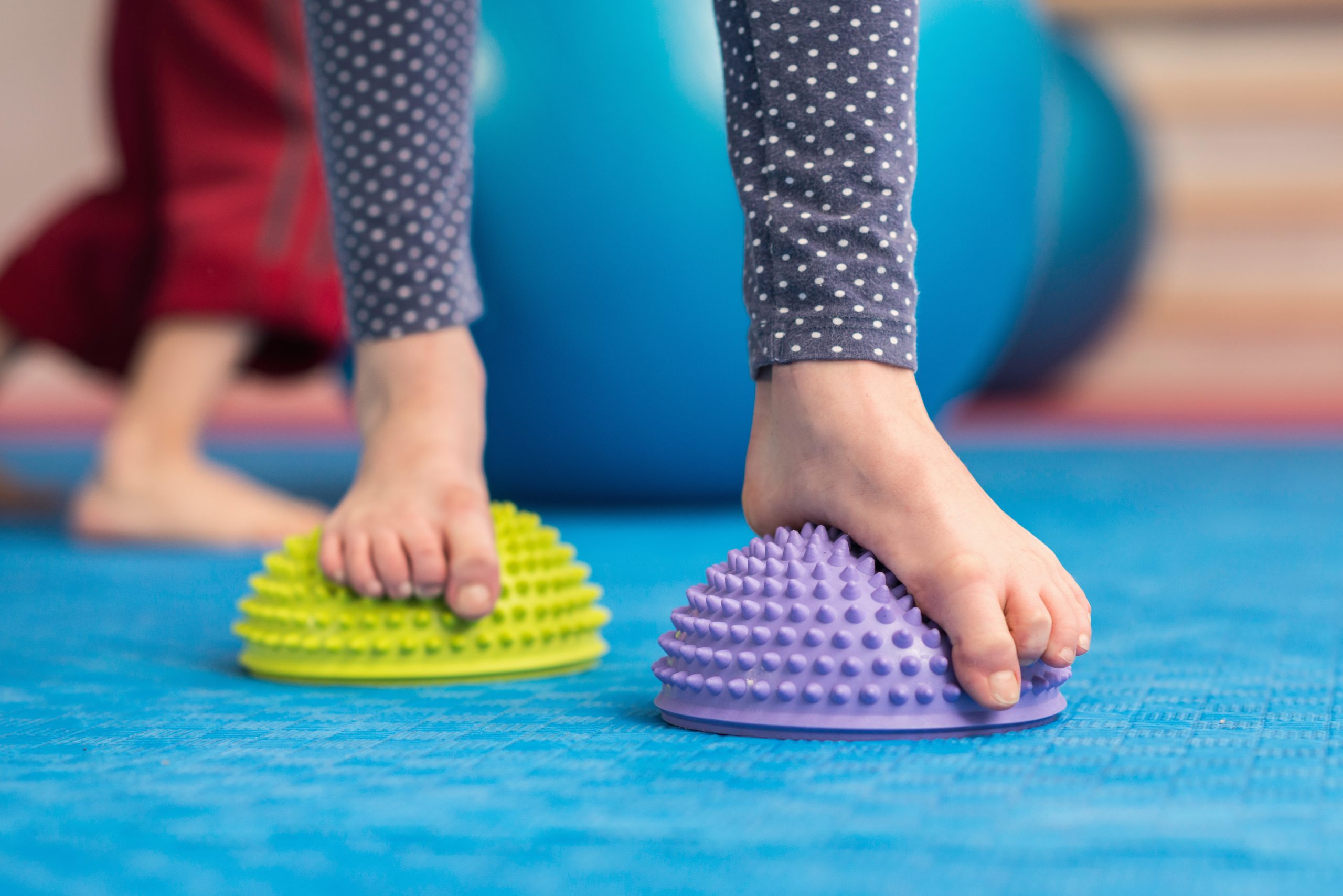Prader-Willi Syndrome and Physiotherapy

Physiotherapy for children with Prader Willi Syndrome (PWS) primarily focusses on the child’s low muscle tone, which can delay attainment of gross motor milestones. Early intervention should begin as soon as possible to monitor and progress developmental milestones carefully.
Babies
Up until the child starts walking, there is a period of achieving developmental milestones on the floor. This includes tummy time, coming up onto hands and knees and then transitioning about the floor to sitting and standing. It can be challenging for parents to see their child struggling with floor activities, but with targeted exercises can be less traumatic for the child while achieving functional goals.
Toddlers
Once a child is standing, balance work is key in encouraging children to take steps to walk. Sometimes a very supportive walker may be needed to encourage a child to stay up on their feet, but soon after the walker will be replaced with a toy trolley, until independent walking begins. We often find children walk between the ages of 2-3 years old.
Preschool and Childhood
At Paediatric Physiotherapy Centre, we focus on a child’s ability to walk functionally. For a child to be able to walk long distances, we focus on core and lower limb strength, coordination and higher-level balance skills such as jumping, climbing and stepping up and down. These skills assist in walking up and down hills and gutters and provides for more functional independent play in the playground.
In the rooms at Paediatric Physiotherapy Centre, we have lots of fun modalities to improve balance and coordination skills. Often these are practised in sequential order to build upon the child’s functional skills to achieve successful outcomes (E.g. walking with less tripping over).
Adolescence and Adulthood
In the older years, strength training and body weight maintenance is a significant focus. These goals can be achieved with a combination of strengthening work with hand weights or Velcro strap on weights, resistance bands, and cardio work to burn additional calories. However, studies have shown there is an underlying muscle fibre distribution abnormality1. This can affect movement, reduce calorie expenditure and result in increase fat mass to lean body mass. This is why targeted exercise programs are vitally important for children with PWS. It is a physiotherapists skill base which will ensure the daily exercise program is appropriate for each PWS child.
1 Sone, S, 1994, ‘ Muscle histochemistry in the Prader-Willi Syndrome’ Brain& development, Volume 16, issue 3, P 183-188.
Prader-Willi Syndrome (PWS) is a rare, complex, unique, life-threatening multistage genetic disorder which affects 1 in 15,000 births and results in an abnormality of chromosome 15. PWS can have a significant impact on behaviour, learning, mental and physical health, community inclusion and social relationships. People with PWS exhibit high anxiety, complex and challenging behaviours and cognitive dysfunction throughout their lives. PWS is a spectrum disability, and the degrees of visual abnormality varies immensely. Many people with PWS also have psychiatric problems and autistic characteristics. A defining characteristic of PWS is hyperphagia, or a compulsion to eat. For more information visit www.pwsavic.org.au
Prader-Willi Syndrome Association of Victoria (PWSA Victoria) is a volunteer lead ACNC registered Australian Charity, with many volunteers having lived experience. Their role is to work closely with organisations around the world, whose vision and purpose align with their own, to ensure their local PWS community is well supported, while researchers around the world work hard to find a cure and viable treatments. The PWSA Victoria’s aim is to continue to break down barriers and create a world where everyone with PWS has access to the right tools, to enable them to live a full and inclusive life. For more information, please visit www.pwsavic.org.au

